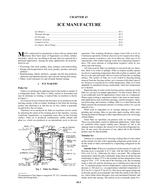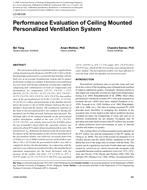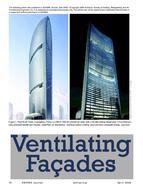The present study replicated and extended prior work on a field-based approach to the development of comfort standards, low-cost, no-cost conservation strategies, and media procedures to increase consumer knowledge and motivate responsiveness. The study, conducted during the winter, involved 105 homes and about 150 adults residing in all-electric apartments. Following a baseline phase, participants saw trio brief videotape programs that demonstrated conservation strategies within a storyline. Some participants saw the programs at home, others in groups; some participants also received social support, while others did not. A comparison group did not view the programs.
Dependent measures included kWh consumption, continuous measurement of temperature and humidity inside the-homes with hygrothermographs, weekly measures of comfort and clothing worn (clo), and pre-post tests on information about comfort and conservation strategies. By adopting simple conservation strategies, with low-cost ones substituted for and offsetting high-cost ones, consumers were able to reduce overall electricity use by about 13% and electricity used for heating by 25%, results that replicate prior research. The offsetting strategies kept the temperatures of the apartments at about 67.4°F (19.6°C) and 50% throughout the study, with only .65 clo worn and the situation perceived as comfortable by participants. Although the temperature was higher than in the prior study (62.6°F, [17.6°C]), clo-value was somewhat lower, and the clo-value and temperature in the present study being below comfort standards based on laboratory research. Consumers were found to have limited correct knowledge of comfort and conservation strategies prior to the programs, but showed large information gains after the programs. The results are discussed in terms of a field-based approach to studying comfort and conservation strategies, the effectiveness of simple strategies, and the potential of television in promoting informational and behavioral changes.
Citation: Symposium, ASHRAE Transactions, 1983, vol. 89, pt. 2B, Washington, D.C.
Product Details
- Published:
- 1983
- Number of Pages:
- 13
- File Size:
- 1 file , 1.3 MB
- Product Code(s):
- D-DC-83-11-5


